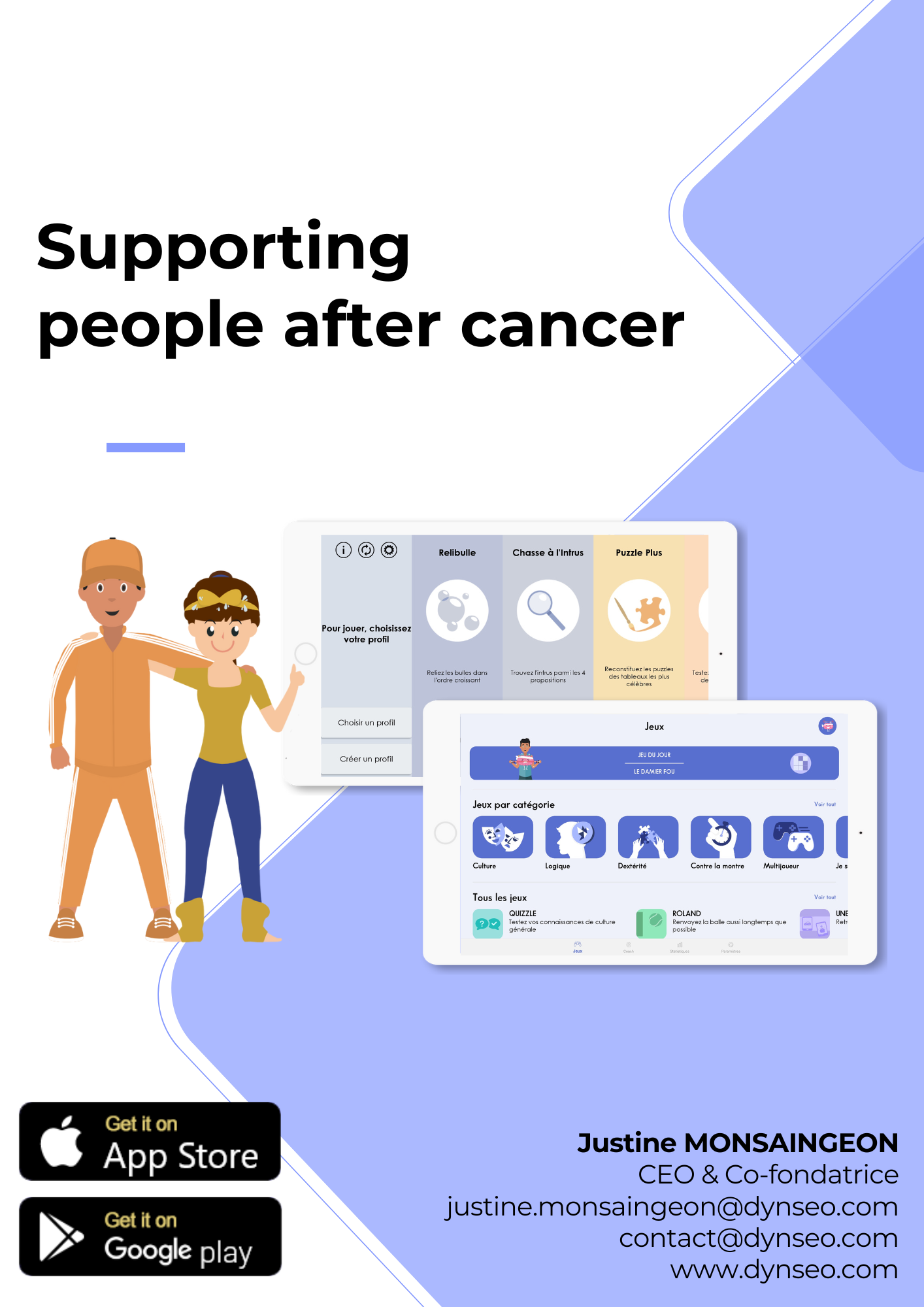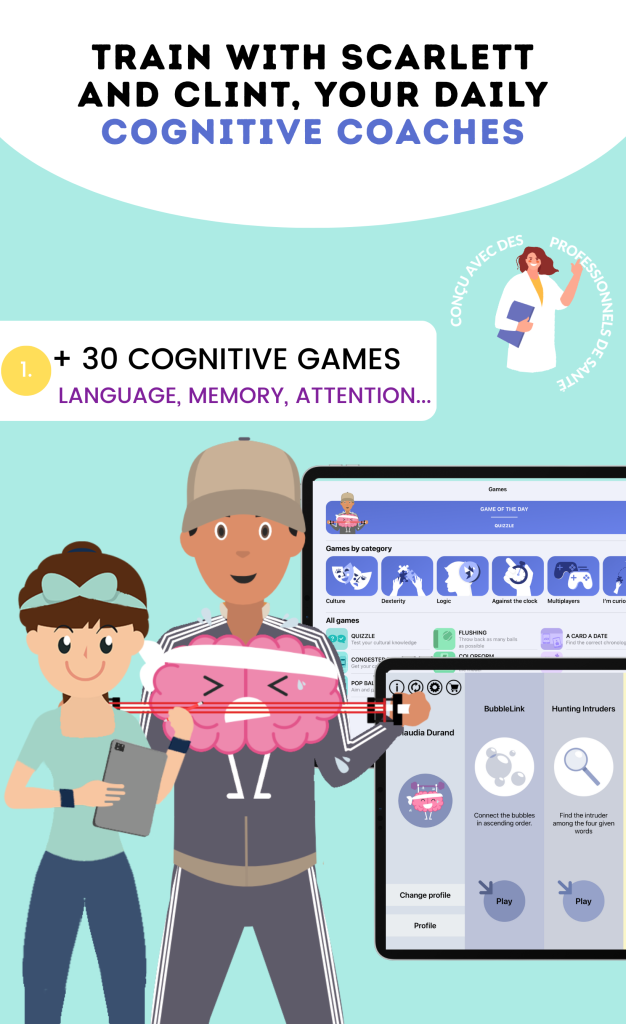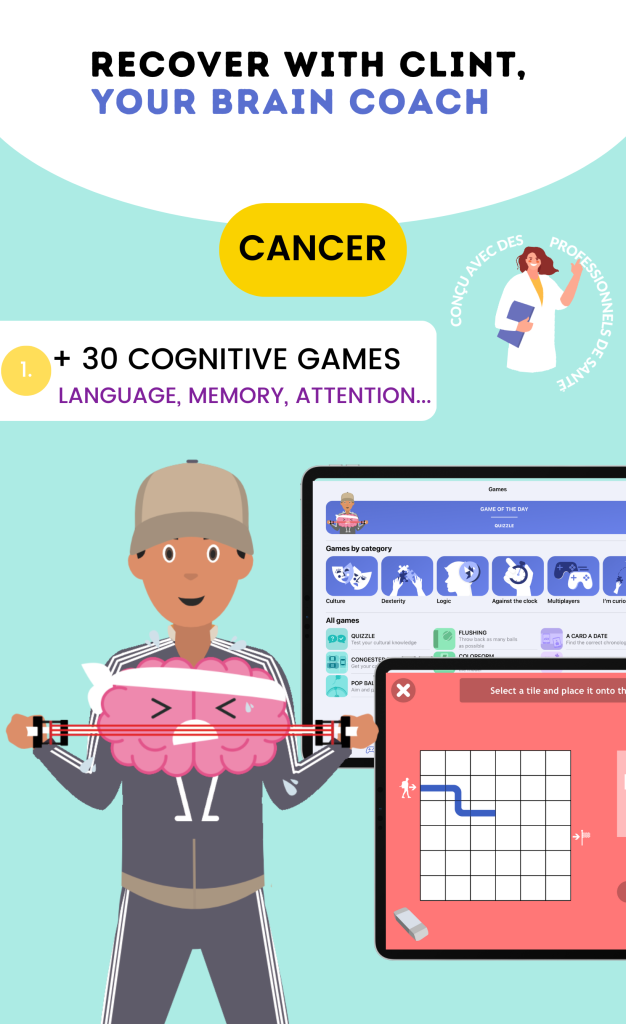Cognitive Rehabilitation Techniques to Improve Attention
Improving attention in cancer survivors is a key objective of cognitive rehabilitation, as attention is often one of the most affected cognitive functions after treatment. Attention rehabilitation techniques aim to help patients better focus on daily tasks and manage distractions. Here are some of the methods used:1. Exercises for searching for specific information
These exercises can include activities such as reading a text and searching for specific information or specific details in it. For example, a patient might be asked to identify all the important names or dates in a given passage. These tasks help train selective attention and the ability to maintain concentration on a particular objective.2. Problem-solving and complex tasks
Problem-solving exercises require sustained concentration and the ability to maintain attention for longer periods. Tasks such as solving puzzles or complex mathematical problems can help improve sustained attention and develop the capacity to maintain mental engagement on difficult tasks.3. Concentration techniques such as meditation and yoga
Regular practice of meditation or yoga helps improve attention by training patients to focus on their breathing or on specific body movements. These techniques help reduce mental agitation and improve the ability to concentrate on a given task or objective for a certain period of time.4. Attention management strategies
Practical strategies include task planning and reducing distractions. For example, patients can be encouraged to divide complex tasks into manageable small steps and to use distraction-free environments to improve their attention. The use of to-do lists, reminders, and timers can also help them maintain their concentration.Cognitive Rehabilitation Techniques to Improve Executive Functions
Executive functions include crucial cognitive abilities such as planning, problem-solving, and decision-making. These functions are often affected in cancer survivors, which can make daily life management difficult. Cognitive rehabilitation can strengthen these skills through specific exercises.1. Planning exercises
Planning activities can include creating a schedule or developing an action plan to achieve a goal. For example, the patient could be asked to organize their daily tasks according to priorities or to plan a project over several days. This technique promotes the structuring of schedules, which can make tasks easier to accomplish.2. Problem-solving and decision-making
Problem-solving exercises encourage patients to explore alternative solutions and analyze the possible consequences of their choices. For example, a patient might be confronted with a dilemma (choosing between two activities, for instance) and encouraged to consider the advantages and disadvantages of each option before making a decision. This type of exercise helps patients develop decision-making skills.3. Decision-making strategies
Another technique involves learning to weigh the advantages and disadvantages before making a decision. This can include practical activities, such as deciding the best way to handle a situation, while taking into account long-term consequences. For example, a patient might be asked to plan a budget or choose a social activity, taking into account factors such as available time or necessary resources.Cognitive Rehabilitation Techniques to Improve Communication
Cognitive rehabilitation can also play a major role in improving the communication abilities of cancer survivors. Indeed, cognitive disorders frequently affect the ability to understand and express ideas clearly and effectively. Here are some techniques used to improve communication:1. Active listening exercises
Active listening is an essential skill for effective communication. Exercises that encourage attentive listening for example, listening to a story and summarizing what was heard can help patients improve their oral comprehension and attention to details. This allows them to respond better in conversations and avoid misunderstandings.2. Reformulation and requesting clarification
Reformulation exercises can be used to help patients better understand information. For example, after listening to a message or instruction, the patient can be encouraged to reformulate what they heard in order to verify their understanding. This technique improves not only comprehension but also the ability to ask clarifying questions.3. Clear expression strategies
Patients can also be helped to organize their thoughts before expressing them. Activities such as using visual aids (such as charts or concept maps) allow information to be structured before communicating it. Additionally, practicing communication in low-distraction environments can help make ideas more coherent and organized.The Benefits of Cognitive Rehabilitation for Cancer Survivors
Cognitive rehabilitation can have a significant impact on the quality of life of cancer survivors by helping to restore their cognitive and emotional abilities. Here are some of the main benefits:1. Restoration of independence and autonomy
The improvement of memory, attention, executive functions, and communication allows cancer survivors to regain their independence and autonomy. By regaining their ability to accomplish daily tasks, make decisions, and organize their schedule, they can better manage their lives without having to depend on the constant help of others.2. Reduction of symptoms of cognitive disorders
The symptoms of cognitive disorders, such as memory loss, attention difficulties, or organizational problems, can be mitigated through targeted exercises. This allows cancer survivors to regain an improved quality of life, reduce anxiety related to symptoms, and better manage the cognitive challenges of daily life.3. Facilitation of social and professional reintegration
Cognitive rehabilitation can also facilitate the social and professional reintegration of survivors. By restoring their cognitive abilities, they are better prepared to participate in social interactions and return to work. This can strengthen their self-esteem and their motivation to engage in social and professional activities, thus contributing to their emotional well-being and their reintegration into society.In summary, cognitive rehabilitation is a valuable tool to help cancer survivors overcome post-treatment cognitive deficits. Thanks to techniques adapted to improve attention, executive functions, and communication, these patients can regain their autonomy, improve their quality of life, and reintegrate more easily into society.





